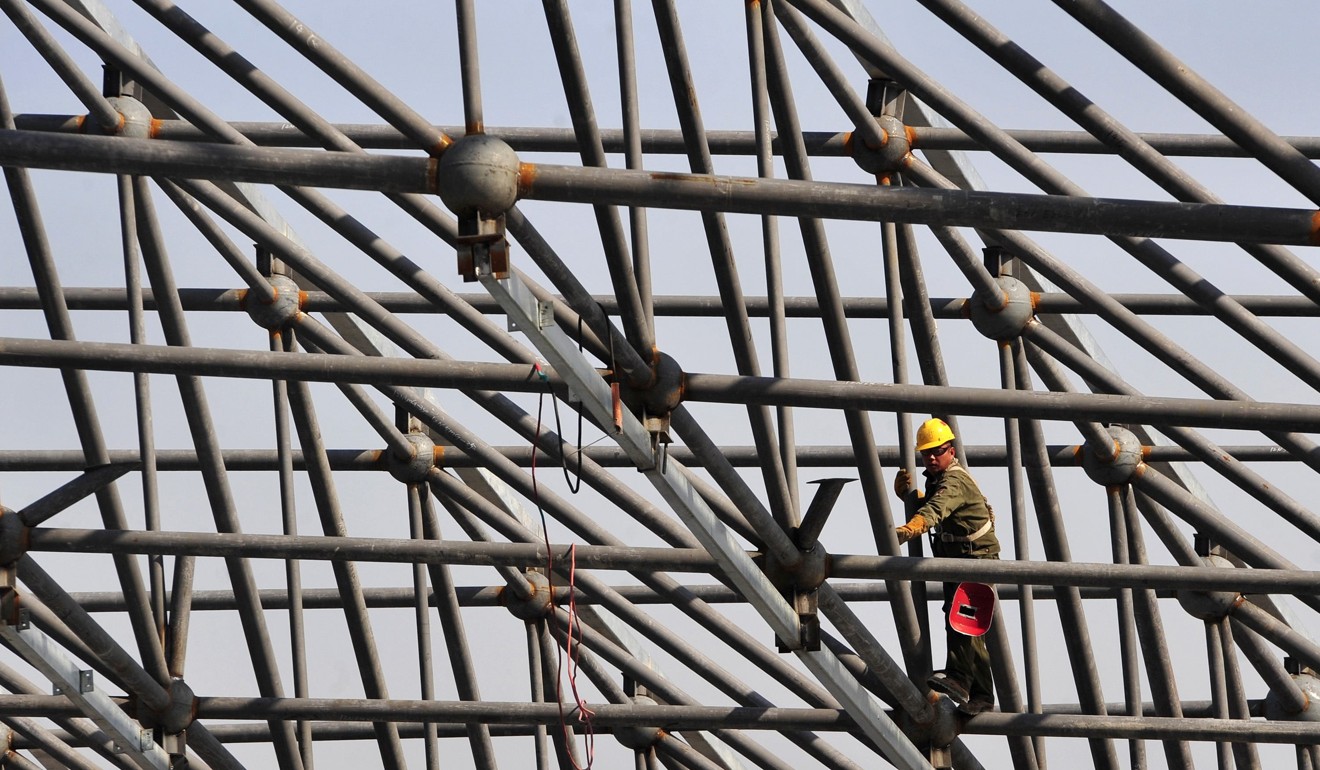
Xinjiang halts all government projects as crackdown on debt gets serious
China’s biggest region issues blanket infrastructure suspension as it combs through the books to check they have enough funding to ensure their completion
All government-funded investment projects have ground to a halt across a vast region of western China while the authorities review whether these will increase government debt.
The blanket suspension of government-sponsored investment projects in Xinjiang – an area bigger than France, Germany and Spain combined – is the most dramatic move by a Chinese province or region to act on calls from the top to curb borrowing.
The Xinjiang Development and Reform Commission said in a statement published last week that local authorities must “comb through” every single government-funded project started after January 2017, especially those started after July 2017, to find out whether they have enough funding to ensure completion.
Those projects that do not have enough funding to finish and are likely to need additional funding from the government should be abandoned, the statement added.
“We would rather to have a slower economic growth rate than accumulate debt and we must … ensure there is no increase in government debt,” the statement from the Xinjiang economic planning commission said.
It added that it would not accept any application for new projects from local authorities if they could not prove there was already sufficient funding for the intended projects.

It means many ongoing infrastructure and industrial projects in the autonomous region, which covers a sixth of Chinese territory, will have to be suspended and marks an abrupt end for a growth model that relies on debt-fuelled government spending.
The development in Xinjiang came as Beijing is trying to discipline the borrowing activities of local authorities and to curb illicit debt in various forms. The Central Economic and Financial Commission made clear on its first meeting on Monday that local governments and state-owned enterprises must cut debt further. The Ministry of Finance also issued a directive last Friday to ban state-owned banks from offering local government loans.

“Local government debt is an important part of financial de-risking … a series of punishments from the finance ministry have generated some results,” said Wen Laicheng, a professor of fiscal science at the Central University of Finance and Economics.
China’s official figure for government debt stays an “overall controllable” level of 36.3 per cent of national GDP at the end of last year.
It includes 16.5 trillion yuan (US$2.6 trillion) of local government debt and 13.5 trillion yuan of central government liabilities.
However, debt hidden in a variety of government investment funds, implicit guarantees and public-private partnership projects remain a major concern.
The move in Xinjiang could be followed by more regional authorities and central agencies, Wen said.
“For instance, the central bank could limit bank lending [to local government projects] through macro prudential policy framework,” Wen added.
The People’s Bank of China is making “timetables and road maps” to address China’s financial risks such as shadow banking activities underlying local government debt, according to a statement published on Wednesday.
The impact on the new directive from the Xinjiang regional government is likely to be significant. Official data showed fixed asset investment surged 20 per cent in 2017 to 1.2 trillion yuan in Xinjiang, far higher than the national rate of 7 per cent.
The move is also likely to hurt Chinese private investors funding infrastructure projects as all public-private partnership (PPP) programmes have been suspended pending investigation.
According to Dayue Consulting, a Chinese firm that tracks PPP projects endorsed by China’s finance ministry, at least 107 projects in Xinjiang, from road construction to environment protection, were taken off a state-endorsed list in the last week of March.

